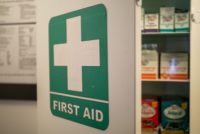Marijuana Safety Concerns Voiced by Occupational and Environmental Medical Group
An occupational and environmental medical group urged members of Congress to keep workplace safety implications in mind when considering marijuana legalization. Congress should proceed cautiously and make public and worker safety its primary concern before legalizing marijuana, the American College of Occupational and Environmental Medicine (ACOEM) said in a statement. Several states already have enacted […]







